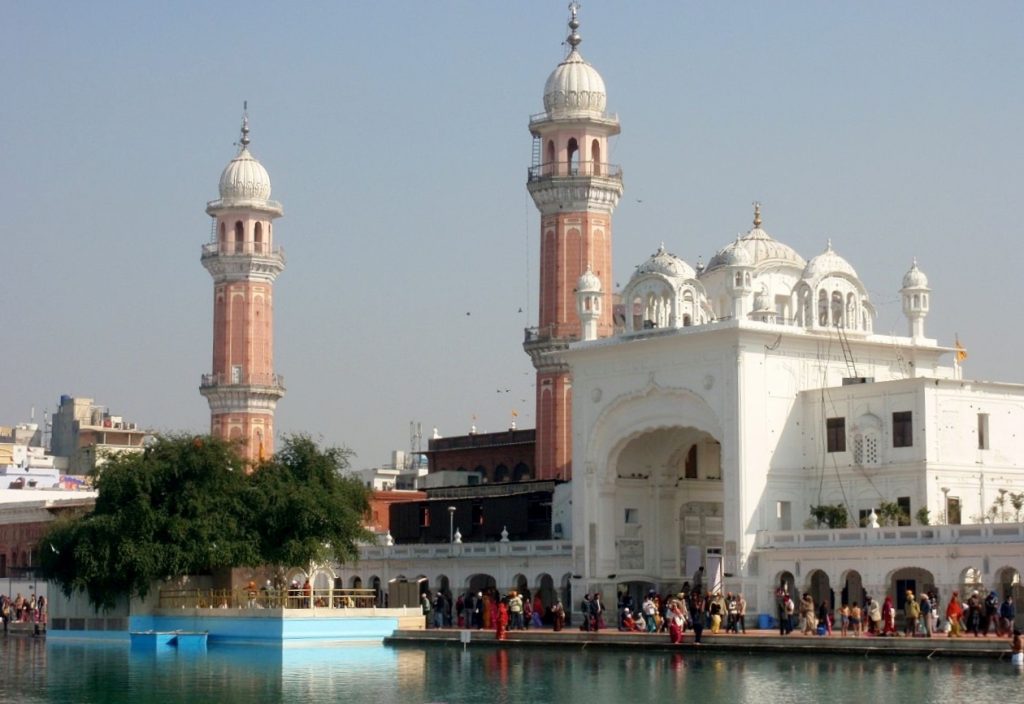Discover the inspiring story of Ajmer Singh, a 17th-century Muslim who embraced Sikhism and Khalsa under Guru Gobind Singh's guidance in Chhatteana.
Explore the impactful life of Amar Singh Wasu (1884-1932), a prominent Akali activist and journalist dedicated to Sikh reform and community service.
Discover Bhai Bahilo's transformation and legacy in Sikh history, from follower to devoted disciple, poet, and dedicated builder of the Harimandar.
BHAGI BANDAR, village 3 km north of Talvandi Sabo (29°59`N, 75° 5`E), in Bathinda district of the Punjab, claims a historical shrine, Gurdwara Jandsar, sacred to Guru Gobind Singh, who visited the site during his stay at Talvandi Sabo. According to local tradition, the jand tree (Prosopis spicigera) and the old well in the Gurdwara compound have existed since before the time of the Guru`s visit. The present complex replacing the old shrine was raised in 1985. The Gurdwara is maintained by the local community.
BHANU, BHAI, BhaiJattu, Bhai Nihalu and Bhai Tiratha, all Chaddha Khatris, were devoted Sikhs. Once they presented themselves before Guru Arjan to have a doubt resolved. They made obeisance to the Guru and said, "Lord, in one of your hymns there is a line: `He alone kills and He alone saves; there is nothing in man`s power.` Yet another hymn says: `In this field of action, as thou so west, so shalt thou reapest.` Which of the two precepts shall apply? Because, if He performs or gets performed all actions, how are we answerable for them? And, if we have to suffer the consequences of our actions, we must have the freedom to act with discretion." The Guru, as says Bhai Mani Singh, Sikhan di Bhagat Mala, replied: "Some merit liberation through action, some through worship, some through knowledge.
BIKRAM SINGH, RAJA (1842-1898). born in January 1842, succeeded his father, Wazir Singh, to the throne of Faridkot state in 1874. A dominant figure in Faridkot history, Raja Bikram Singh modernized the state administration. He employed retired British officials of experience and in 1875 set up offices and courts on the British model and adopted British law. Schools and charitable hospitals were opened and dharamsalas and rest houses for travellers constructed. Sadavarats or free kitchens were established at Faridkot, Thanesar and Amritsar. Sanskrit pathshalas, or schools were started where free food was served to the students.
BUNGA: A place of residence for the Sikhs or the place for rest for the pilgrims. There were at least 69 Bungas at Amritsar in the nineteenth century, some of them are still in existence. Another term for the resting hostel for the Sikh pilgrims is Saran. At Darbar Sahib, Amritsar Guru Ram Das Saran has been built for the pilgrims. Another Saran at Darbar Sahib is named Guru Nanak Niwas. Lately, a paid hostel named Aka/ Rest House, too, has been built. There are Sarans attached to almost all of the major Gurdwaras.
CHETO, or Chetu, was one of the masands, i.e. vicars and to the collectors, found guilty of misappropriating devotees` offerings and punished by Guru Gobind Singh, who finally abolished the system.






